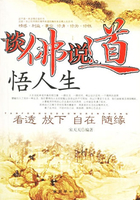"And supposing," Fenn objected, "that to-morrow morning at eight o'clock, twenty-three of us are marched off to the Tower! Our whole cause may be paralysed, all that we have worked for all these months will be in vain, and this accursed and bloody war may be dragged on until our politicians see fit to make a peace of words."
"I know Mr. Stenson well," the Bishop declared, "and I am perfectly convinced that he is too sane-minded a man to dream of taking such a step as you suggest. He, at any rate, if others in his Cabinet are not so prescient, knows what Labour means"
"I agree with the Bishop, for many reasons," Furley pronounced.
"And I," Cross echoed.
The sense of the meeting was obvious. Fenn's unpleasant looking teeth flashed for a moment, and his mouth came together with a little snap.
"This is entirely an informal gathering," he said. "I shall summon the Council to come together tomorrow at midday."
"I think that we may sleep in our beds to-night without fear of molestation," the Bishop remarked, "although if it had been the wish of the meeting, I would have broached the matter to Mr.
Stenson,"
"You are an honorary member of the Council," Fenn declared rudely.
"We don't wish interference. This is a national and international Labour movement."
"I am a member of the Labour Party of Christ," the Bishop said quietly.
"And an honoured member of this Executive Council," Cross intervened. "You're a bit too glib with your tongue to-night, Fenn."
"I think of those whom I represent," was the curt reply. "They are toilers, and they want the toilers to show their power. They don't want help from the Church. I'll go even so far," he added, "as to say that they don't want help from literature. It's their own job. They've begun it, and they want to finish it."
"To-morrow's meeting," Furley observed, "will show how far you are right in your views. I consider my position, and the Bishop's, as members of the Labour Party, on a par with your own. I will go further and say that the very soul of our Council is embodied in the teachings and the writings of Paul Fiske, or, as we now know him to be, Julian Orden."
Fenn rose to his feet. He was trembling with passion.
"This informal meeting is adjourned," he announced harshly.
Cross himself did not move.
"Adjourned or not it may be, Mr. Fenn," he said, "but it's no place of yours to speak for it. You've thrust yourself into that chair, but that don't make you chairman, now or at any other time."
Fenn choked down the words which had seemed to tremble on his lips. His enemies he knew, but there were others here who might yet be neutral.
"If I have assumed more than I should have done, I am sorry," he said. "I brought you news which I was in a hurry to deliver. The rest followed."
The little company rose to their feet and moved towards the door, exchanging whispered comments concerning the news which Catherine had brought. She herself crossed the room and confronted Fenn.
"There is still something to be said about that news," she declared.
Fenn's attempt at complete candour was only partially convincing.
"There is not the slightest reason," he declared, "why anything concerning Julian Orden should be concealed from any member of the Council who desires information. If you will follow me into my private room, Miss Abbeway, and you, Furley, I shall be glad to tell you our exact position. And if the Bishop will accompany you," he added, turning to the latter, "I shall be honoured."
Furley made no reply, but, whispering something in Catherine's ear, took up his hat and left the room. The other two, however, took Fenn at his word, followed him into his room, accepted the chairs which he placed for them, and waited while he spoke through a telephone to the private exchange situated in the building.
"They tell me," he announced, as he laid down the instrument, "that Bright has this moment returned and is now on his way upstairs."
Catherine shivered.
"Is Mr. Bright that awful-looking person who came to the last Council meeting?"
"He is probably the person you mean," Fenn assented. "He takes very little interest in our executive work, but he is one of the most brilliant scientists of this or any other generation. The Government has already given him three laboratories for his experiments, and nearly every gas that is being used at the Front has been prepared according to his formula."
"A master of horrors," the Bishop murmured.
"He looks it," Catherine whispered under her breath.
There was a knock at the door, a moment or two later, and Bright entered. He was a little over medium height, with long and lanky figure, a pronounced stoop, and black, curly hair of coarse quality. His head, which was thrust a little forward, perhaps owing to his short-sightedness, was long, his forehead narrow, his complexion a sort of olive-green. He wore huge, disfiguring spectacles, and he had the protuberant lips of a negro. He greeted Catherine and the Bishop absently and seemed to have a grievance against Fenn.
"What is it you want, Nicholas?" he asked impatiently. "I have some experiments going on in the country and can only spare a minute."















